This post may contain affiliate links. If you make a purchase through a link, I may receive a small commission, at no cost to you. These commissions help keep this website up and running, and I thank you for your support. Read my full disclosure here.
Being on a budget doesn’t mean that you have to miss out on the joys of travelling. It just means that you need to take a little more time when it comes to planning your trip. There is a surprising number of things that you can do to reduce the costs and make your dream of travelling a reality. I’ve put together a MASSIVE list of over 40 ways that you can save money whilst travelling. These are all tips that I’ve put together over my years of travelling, so enjoy, and happy (budget) travels!
Plan Your Trip
1. Choose a Destination That Fits with Your Budget.
There are lots of countries and cities where your money can stretch a lot further. For example, Serbia, Croatia, Greece and many parts of Asia, such as Bali and Vietnam. Save those more expensive locations like Stockholm and Switzerland until you have more money.
2. Take the Time to Plan Your Trip
Most people only plan what they are going to see and do on their trip and don’t take time to plan how they are going to save money. Take advantage of tips from other travellers, which you can easily find by making use of travel forums like TripAdvisor. On these forums, you can get support from experienced travellers and locals, keen to share their local knowledge. Before asking your question, search old threads, as it has probably already been answered.
Whilst on holiday, continue to chat with fellow travellers. This is often easiest to do when you are staying at hostels, as the communal spaces are a great place to meet others to share tips, experiences and ideas.
3. Travel Off-Season
It’s much cheaper to travel in spring, autumn or winter. Try and avoid your holiday destinations’ school holiday periods (which you can easily Google) and their summer peak season, as it will be much more expensive. Don’t feel disappointed about having to travel outside of peak season, as you will enjoy cheaper accommodation, fewer crowds and smaller lines at the popular tourist sites. For example, I love taking my beach holiday in the Northern Hemisphere at the start of September. Kids have returned to school, and it is still lovely and warm. In fact, this is when ocean temperatures are at their warmest, as the water has been warming up all summer.
Flights
4. Book Your Plane Tickets in Advance and Be Flexible
To save the most money, you will need to be flexible and book in advance. Generally, flying on a Friday, Saturday and Sunday are the most expensive days. Mid-week is usually the cheapest time to fly, especially Tuesdays. Travelling at a crazy early time (like 4am!) or late at night can also save you money.
Most flight comparison sites let you set up a price alert to ensure you get the best deal when it becomes available, so get your alerts set up early. Flight prices usually fluctuate throughout the week and are usually most expensive if you purchase them during the weekend compared to during the week days. I notice that a lot of airfares seem to drop on Thursdays then shoot back up again over the weekend.
5. Clear Browser Cookies and Use Incognito
Websites use cookies to track how often you have visited their site. Because they know you are interested in these flights, they increase the price when you go back to book them. This can be so frustrating, so beat them at their game by clearing your browser cookies and using an incognito window before heading back to their site. Both can be accessed via the settings on your browser, it should come up as an option on the menu.
6. Use a VPN
Most travel sites charge you a rate based on which country you live in, i.e. if you live in an affluent country, you will get charged more than someone living in a country where people have less money. You can trick the website into believing you are from another country by using a VPN in an incognito window and changing your IP to a different location. If you return to the site, make sure you continue to clear your browser cookies.
7. Take Advantage of Sales Fares
Sign up to travel sites to get email alerts when they release their sale fares. But have a reasonable idea of how much the flight usually costs beforehand to ensure it is actually a good deal and not just clever marketing.
8. Take Caution with Cheap Airlines
Sometimes flights are cheap because the airline doesn’t fly into the main airport. Instead, they may fly into another, smaller airport. Don’t panic, this might not be a big deal. Sometimes these smaller airports are better, as they can be less busy. But before booking the flights, check whether you can easily and quickly get to your destination from the airport. Most of the time, there is a shuttle service which is scheduled around the flight times, but if there are no reasonable transport options, you may end up having to spend lots of money on a taxi which could ultimately cost you more.
9. If You Can’t Get a Direct Flight…
If can’t get a direct flight, and the only option is to get a series of flights on different airlines, sometimes it is cheaper to purchase the flights individually. For example, when I was flying from Dublin, Ireland to Montpellier, France, there were no direct flights and the flight options coming up on the flight comparison sites were super expensive multi-flights. So instead, I searched for each of these flights separately, working out which was the cheapest city to fly into at each stage. In the end, I flew from Dublin to Nantes and then onto Montpellier. It saved me heaps of money.
10. Reduce Your Luggage
If you are travelling on a budget airline that has additional charges for checked in baggage, then consider taking carry on only or paying for the cheapest luggage weight possible. Sometimes if I am travelling with my husband, we just pay for one checked in bag and share it (warning – this can lead to arguments about how much room each person gets in the suitcase!).
I know that some of you might be freaking out about how you can travel with only a carry on, but seriously, it can be done! To help you pack light, follow my post on how to pack an extra light toilet bag.
11. Check-In Online
Budget airlines sometimes charge you for checking in at the airport, so make sure you read the fine print and put a reminder in your diary to check-in online before your trip.
12. Print Your Own Boarding Pass
These days, most budget airlines will also charge you to print your boarding pass. Avoid this fee by checking in online and printing your own boarding pass.
Some airlines are getting tricky by only letting you check in and print the boarding pass within a few days of your flight. This is a problem if you are on a longer holiday because you might not be able to check in for your return flight before leaving home. So far, I’ve been able to get around this by using my phone/iPad to check in, then asking my accommodation to print out the boarding pass for me.
You can also get around this issue by using an eboarding pass with the airline’s App (only available with some airlines). Then you don’t even have to worry about printing it (but check with the airline whether you can use an eboarding pass, as I can’t due to my passport/visa situation, as I must get my boarding pass physically stamped).
Transport
13. Use Public Transport
Making use of local buses, trains, trams and ferries is a great way to save on travel. Look out for multi-ticket deals offered to tourists that give you unlimited travel for a fixed price and time period.
14. Airport Transport
If you’re catching airport transport and are planning to return to the same airport, then check if they offer a discount for return tickets.
If there is a group of you, it may be cheaper for you to take a taxi together. Many taxi companies will agree on a fixed rate airport transfer. Or consider booking a private car that will provide a fixed rate, so you know what you are going to be charged in advance.
15. Long Haul Bus or Train?
Travelling by train is generally more expensive than using the bus. This is fine for shorter distances, as they often take the same amount of time to get to the destination. However, for longer trips, trains are generally much faster. So, you will need to weigh this up – cheaper but longer trip versus more expensive but faster trip.
16. Book Your Bus and Train Tickets in Advance and Online
Save money on train and bus tickets by purchasing them in advance and online. If you are making a return trip, then it can be cheaper to purchase a return ticket (as opposed to purchasing two one-way tickets).
It may be cheaper to buy your tickets using ‘split ticketing’. You can usually split your journey into smaller chunks but stay on the same train as long as the train calls at that station, and pay less than one ticket for the entire journey. For example, I live in the UK. If I want to buy a long distant train ticket then sometimes it is cheaper for me to buy broken up tickets into each of the cities that the train is passing through, rather than just one ticket for the whole route. This sounds crazy I know, especially when I get to stay on the same train for the whole trip, I just have to keep showing the conductor my ticket for each leg of the trip.
17. Travel Off Peak
Being flexible with the time of day that you travel can really save you money on bus and train tickets. Usually, travelling midday is cheaper but check this out when you book online, as the price can vary greatly depending on the time it departs.
For local public transport, many cities charge more for peak time travel, i.e. when people are travelling back and forth to work.
18. Purchase Discount Rail and Bus Passes
If you plan to travel around a lot using bus and rail, then consider purchasing a tourist discount travel pass. For example, I’ve used the Eurail Pass and the Japan Rail Pass. Only non-European residents can travel with a Eurail pass. If you’re a European resident you can travel with an Interrail pass instead.
However, before purchasing a discount travel pass, make sure that you are going to get your money’s worth by checking all of the individual fares to your destinations. Add them all up and compare it with the cost of the travel pass.
Cycling
19. Use Bikes to Get Around
Most cities have some sort of city bike scheme and it’s a fun and cheap way to get around. Most of these schemes offer tourist discounts, and for a fixed price and time, you can get unlimited use of them.
Before hiring a city bike, check local bike hire shops in case they offer better prices than the city bikes. Also, check with your accommodation whether they have bikes available for hire. Sometimes hostels and B&Bs offer guests bikes to rent either free of charge or for a cheap rate.
Walking
20. Explore On Foot
I always recommending walking wherever you can. Not only is it good for fitness (and working off all that extra holiday food you’ve eaten) but is also a great way to see things that you would normally miss if you were sitting on a bus or tram.
Car Hire
21. Save Money on Car Hire
If you are only planning short excursions, then public transport is usually a cheaper way to get around. But if you are planning on a longer trip, then hiring a car provides you a great deal of flexibility, allowing you to travel on your own schedule.
Follow these tips to reduce your car hire costs:
- If you are arriving in a city and plan to spend some time there before commencing your tour, then save money by collecting your hire car on the day that you plan to commence your road trip. Some cities are very difficult to drive around and may have limited and expensive car parking.
- Save on fuel by hiring an economical, small car.
- Book your car rental in advance to get the best price.
- Be aware that in Europe, automatic vehicles are more expensive to rent than manuals and harder to come by. So be prepared to pay more and to book in advance if you need an automatic.
- Most car hire companies charge a fee for additional drivers, so if you can, designate one person to do all of the driving (but be aware of driver fatigue).
- Some car hire companies charge fees for dropping the car off in a different location from where you collected it. Try and plan your trip so you can pick it up and drop it off at the same location.
Navigating
22. Navigating
If you’re planning on renting a car, don’t waste money hiring a GPS from the car rental company. You can use your phone or tablet to navigate by using Google Online Maps or Google’s free Offline Maps. Google Offline Maps allow you to access free maps for navigating that can be used offline i.e. you don’t need WiFi, data, or roaming to be able to use them. Use this detailed guide on how to use Google’s Offline Maps.
- Using your phone as a GPS will drain your battery quickly, so make sure you travel with a portable charger so you don’t get stranded. For easy navigating I also recommend you purchase a car phone mount holder.
- If you prefer a paper map, then purchase a road map before you go. At least it’s reliable and won’t run out of battery or malfunction like the electronic options!
Accommodation
23. Don’t Stay in Hotels
Hostels and B&Bs are typically cheaper than hotels. Now for those of you that may cringe at the idea of staying in a hostel, think again. Hostels aren’t just for young people anymore. These days, you’ll find people of all ages as well as families staying in hostels. Alongside shared bunkrooms, many hostels offer private rooms and family rooms with ensuites, making them very similar to a hotel room anyway. The quality does vary (just like it does for hotels), so always check reviews and photos before booking. Many hostels we have stayed it were much nicer and cheaper than the hotels on offer.
Some hostels and B&Bs may have the option of a private or shared bathroom. If you don’t mind sharing the bathroom, then this option can save you money, whilst still being able to have a private bedroom.
Hostels are a great way to meet your fellow travellers and they often provide free breakfasts, have access to a washing machine (great for longer trips), and free activities which can include free food such as pizza or BBQ nights. They also offer tours that can be cheaper. For example, we’ve been picked up by a tour that also collected guest from expensive hotels. The tour guide quietly asked us not to discuss the price we paid with our fellow travellers as they had charged them more.
24. Offer to Clean
If you are staying in private accommodation such as an Airbnb rental or apartment that charges a cleaning fee, consider offering to clean the accommodation yourself and save yourself the additional fee. You need to be prepared to clean it to a high standard though. I used to clean hotel rooms when I was at university, so I feel pretty confident in my cleaning and have done this many times and saved myself up to €50.
25. Consider Renting a Campervan or Camping
Ok, so this option won’t suit everyone, but camping or campervanning is a cheap and fun way to travel, combining transport with accommodation. Best done in the warmer months though!
Food and Drink
26. Cook Your Own Food
The cost of eating out whilst travelling quickly adds up. Cooking and preparing your own food can save you heaps of money. If you plan to stay in a location a bit longer than a few nights, then it may be more economical for you to rent an apartment or cottage which includes a kitchen. Then you can save money by shopping at the local supermarket and cooking your own meals.
Many hostels also have a shared kitchen (always check before booking). You can also score free food left behind by other travellers. Check the hostel kitchen as there is usually a shelf labelled ‘free food’. There are also usually book exchange shelves, which is a great way to refresh your reading collection during a long trip and a great way to find travel guides like Lonely Planet. I’ve also gotten free toiletry items like body wash, shampoo, and body lotion, which people leave behind if they are travelling with hand luggage only and have liquid limits.
[icon name=”lightbulb-o” class=”” unprefixed_class=””] Tips
- Prior to your trip, when visiting food restaurants that have those little sachets of salt, pepper and sugar, grab a handful to take on your holidays.
- Consider taking a small bottle of cooking oil with you. Just make sure that you dispense it into a secure, screw top bottle and seal it in a ziplock bag so that it won’t leak through your luggage.
27. Don’t Pay Extra for Breakfast
If staying at a B&B, be aware that some of them have an additional charge for breakfast, i.e. it is not always included in the room price. I’ve always found the price to be expensive, so usually just pop into a local bakery for a breakfast pastry. I also like to travel with breakfast biscuits or museli bars, which make great breakfast snacks.
28. Pack Your Own Lunch
Pack yourself a picnic lunch to enjoy sitting in a historic city square or in the countryside and immerse yourself in holiday bliss.
[icon name=”lightbulb-o” class=”” unprefixed_class=””] Tips
- I always travel with ziplock bags to use for sandwiches and for dispensing snacks like chips, dates, and nuts from larger bags into snack sized bags.
- I often boil up a batch of hard boiled eggs as they make great protein snacks and are easy to transport.
- Buy some easy to transport fruit for snacks like apples and oranges.
- If food is cheaper in your home country, then bring snacks with you.
29. Drink Tap Water (If It’s Safe to Do So)
If you purchase a drink every time you get thirsty, the cost soon tallies up, so try using a stainless steel drink bottle. It’s also a great way of cutting down on single use plastic. This bottle is leak proof and insulated, so it keeps hot water hot and cold water cold.
30. Avoid Eating in the Main Tourist Areas
Although tempting to do so, eating in the tourist areas is generally more expensive. Use websites like TripAdvisor to find out where the locals are eating. This will not only save you money, but generally give you a better food experience as well.
31. Plan What Time You Eat and Drink
Some restaurants and bars offer ‘early bird’ dining rates between 5.30 and 7 pm, so look out for these deals and take advantage of them. in addition, restaurants near theatres usually offer pre-show meal deals, but you don’t actually have to be attending a show to take advantage of these deals, you just have to dine early. Lunch menus are generally cheaper than dinner menus, so consider eating your main meal at lunch time and having something lighter for dinner.
32. Eat Street Food
This may fill some people with the fear of food poisoning, but you can just as easily get food poisoning while dining in a restaurant. At least with street food, you can see how it is being cooked first and decide whether you think it is safe to eat it. Eating at food stalls is usually much cheaper than eating in a restaurant.
33. Choose to Take Away/Eat Out/To Go
Find restaurants that offer food to take away. It is usually cheaper to take your food to go, so find a nice park bench and enjoy dining alfresco for a fraction of the price. Grab a bottle of wine or beer at the supermarket with some disposable cups to enjoy with your meal.
Discounts on Sightseeing
34. Purchase a City Tourist Discount Attractions Card
If you are planning on visiting several sites, it may be cheaper for you to purchase the city’s tourist discount attractions card. Most cities have them, but before purchasing, always check that you are going to get your money’s worth by adding up the admission fees of the sites that you plan to visit and comparing it with the cost of the discount card.
35. Purchase Your Attraction and Tour Tickets Online
Many attractions and tours offer a discount if you purchase your admission tickets online. These days, they don’t usually expect you to print your tickets, just show them your electronic ticket on your phone. Sometimes attractions offer an additional discount for entry at certain times (their quiet times). For example, you can purchase discounted tickets online to the Dublin Guinness Storehouse and get an additional discount if you plan to enter the Storehouse between 9.30 am and 11.30 am.
36. Get Student and Senior Discounts
If you have a valid student ID or you’re 55 years or older, then take advantage of discounted student and senior rates at attractions.
37. Enjoy Free Attractions and Activities
In this day and age of travel bloggers, there are plenty of posts online with suggestions of free sights and activities, just search Google or Pinterest for ‘free things to do in X’. You can also get ideas from your accommodation or from the local tourist office. For example, lots of cities have free city walking tours run by local volunteers, as well as local markets, and free museums and galleries. Or try planning your holiday around free activities such as national parks, beaches, and lakes.
38. Check for Free Days at Attractions
Free days at attractions are particularly common in Europe at castles, museums and galleries, and are usually either once a week or once a month. The day varies, so check the attractions website to see if it offers any free days to visitors.
Money
39. Get the Best Money Exchange Rates
If you have a reputable money exchange service in your city that provides you free exchange (some charge fees) at competitive rates, then change your money before you depart. Usually, stores offer better rates the more money that you exchange and are sometimes even willing to negotiate a better rate (it’s worth asking). I order my money exchange online and get a discounted online rate, which is better than if I just walked in off the street. I can then schedule when to collect the money making it much more convenient.
Another cheap way to get currency for your trip is to use your debit card to withdraw cash from a local bank ATM when you get to your destination. Check that your card has a Maestro, MasterCard, Cirrus or Visa symbol on it. Withdrawing money from a local bank ATM usually provides a good exchange rate, especially compared with those currency exchange counters. Your bank will usually charge a small transaction fee (check with your bank), so try and reduce the number of cash withdrawals that you make. But take caution. Your bank, or the bank whose ATM you are using, might limit the amount you can withdraw per day. Before you depart, you should tell your bank where you are going and check if they have any restrictions on the limits you can withdraw, as you may be able to change it. However, there is not much that can be done if it is the local bank at your holiday destination that is limiting it.
DON’T exchange money at the airport if you can help it, as they charge exorbitant rates. Try to change it once you get into the city. Therefore, try to arrive with some of the local currency in your pocket so you can purchase your local transport tickets.
A word of caution – in some countries, it is not safe to exchange money, and you should do it at the airport or before you arrive.
40. Be Careful When Using Credit Cards
International credit card fees quickly add up. So what are your alternatives to avoid getting a nasty shock when you come home to your credit card statement?
- If using your credit card for purchases, try to be billed in euros instead of your home currency. This will generally get you a better exchange rate.
- Use cash. It also allows you to keep a closer eye on how much you are spending and keeps you on budget.
- Get a credit card that offers no exchange rate fees (and no fees). If you have one of these cards, then it is best for you to be charged in the local currency instead of your home currency, as this usually gets you a better rate since you are not having to pay the exchange fees. Take caution with these cards, as they typically charge very high interest rates, so you need to ensure that you can pay the full amount owing when it is due. Otherwise, you can quickly get into debt. I am currently using a credit card that charges no fees or exchange rate fees, but it does have a high interest rate. However, I have it set up to pay the full amount owing when it is due, so I never waste money on interest.
- Be aware that some credit card companies charge a fee to withdraw cash from your credit card, even if it’s money that you have loaded onto it. Some companies may not even provide the normal interest free period for cash withdrawals or even cover any money that you have put onto your credit card if it is lost or stolen. So basically, if you need cash, withdraw it from your debit card.
[icon name=”lightbulb-o” class=”” unprefixed_class=””] Tips
- Make sure that you have a Chip and Pin debit/credit card before travelling, otherwise you may not be able to use it for purchases.
41. Use a Currency Exchange App
It can be difficult to keep track of your spending when using a different currency, so try using a currency exchange app. Taking the time to check the cost of an item in your own currency has the added benefit of making you think twice before splurging on those unnecessary purchases.
Roaming Charges
42. Avoid Roaming Charges
Purchase a cheap prepaid SIM card when you arrive at your destination, it is typically cheaper than the exorbitant roaming charges your own provider will charge – although do check with them before departing in case they have a good deal.
If you are travelling in Europe, then the good news is, they scrapped roaming charges for people with a European SIM. So grab a SIM in the European country you arrive in, and then you can use it for the rest of your trip.
Shopping
43. Buy Food and Drink Souvenirs from the Supermarket
If you are travelling in a particular country that has food or drink that you want to take home as a souvenir, then check if you can buy it at the local supermarkets. It will typically be cheaper than the specialty and tourist stores. An example of this is Scottish whiskey.
44. Reclaim Your VAT
If you are travelling on a budget, you are not likely to purchase much, so this may not apply to you, but some countries allow you to claim your tax back from items you have purchased whilst on holiday. Each country has a different process, but it is definitely worth investigating if you are planning on buying some expensive souvenirs. Some will require a minimum purchase expense, and you will have to present your passport, your receipts, and fill out some paperwork.
This is particularly good in countries that have high taxes. For example, my husband bought an expensive (designer) jumper in Iceland and along with a few other items we purchased, we were able to lodge our return at the airport and then received the rebate into our bank account once we got back home.
If you are dealing with a VAT Refund Agent, then you will need to follow their process. Some VAT refund agents use a swipe card, which is used at the point of sale to record the details of each qualifying purchase. As you exit the country, you will deposit your documentation for purchases with the agent, and the agent will make the necessary refund to you.
Retailers who participate in the Retail Export Scheme will typically give you an export voucher for your purchases. Present this voucher to a Customs Officer as you depart, or leave it in the ‘drop-box’ at the airport. The certified voucher will be returned to the retailer, who will then issue the refund.
[icon name=”lightbulb-o” class=”” unprefixed_class=””] Tips
- Custom officers may inspect your items as you depart, so have them easily available in your bag.

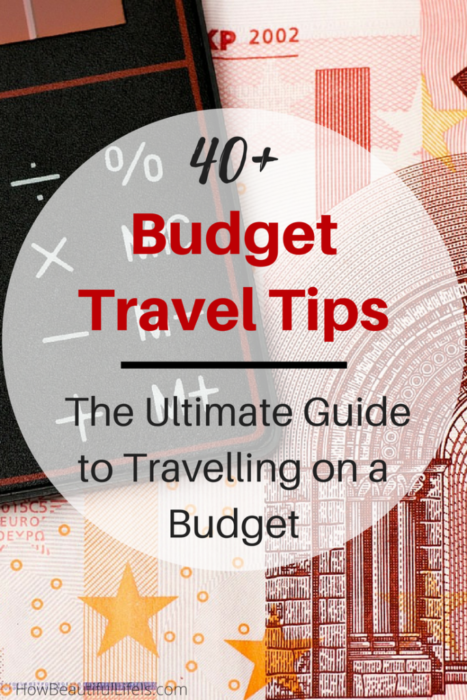
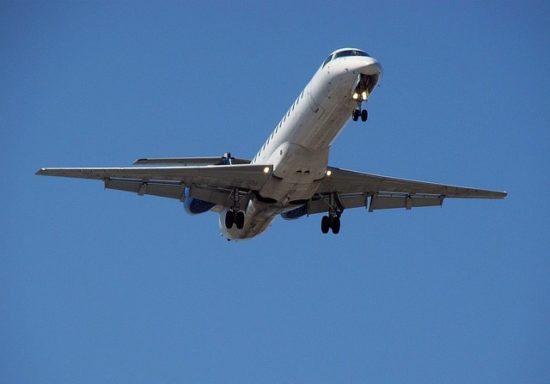
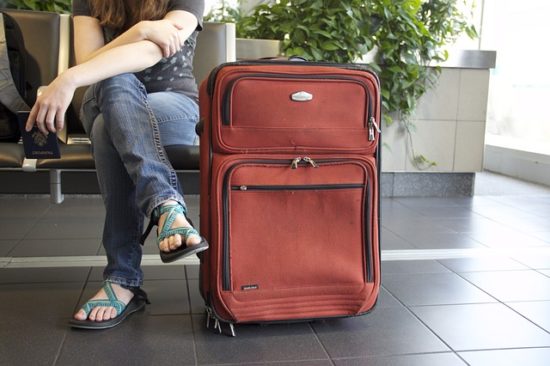
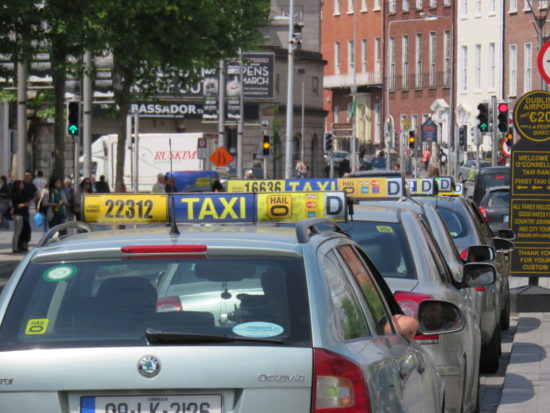
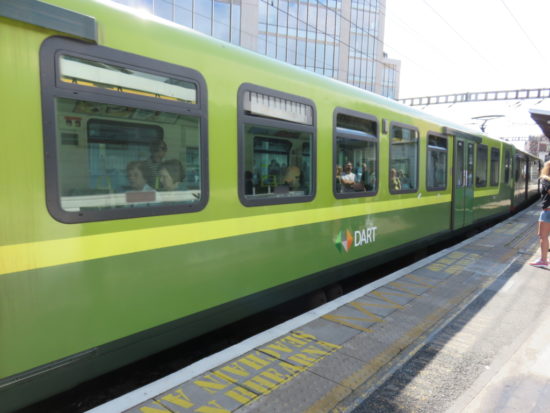
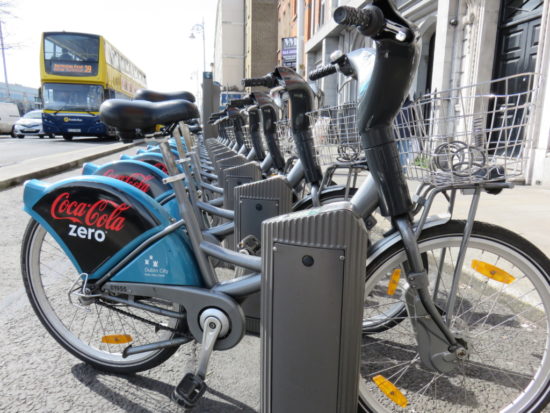
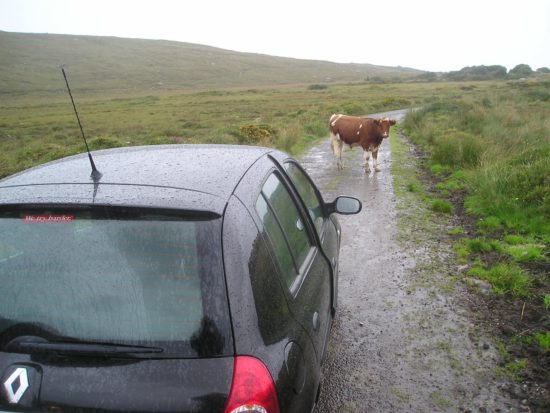
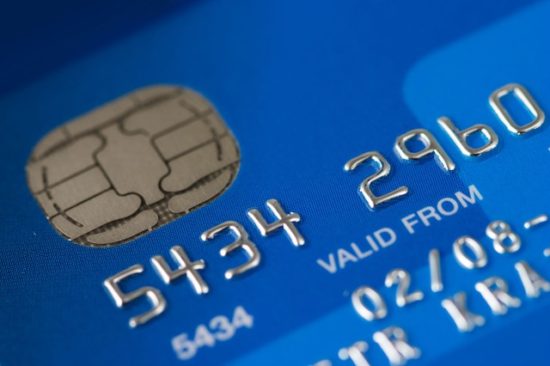
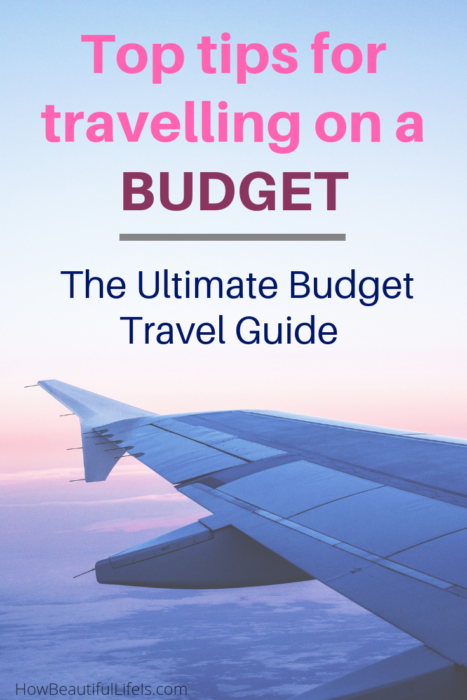
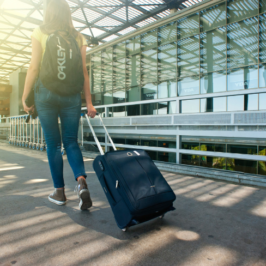

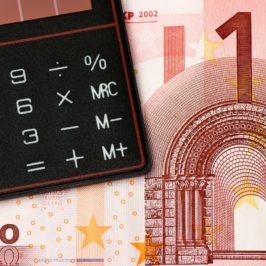


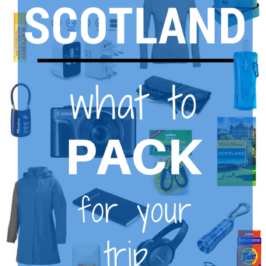
Leave a Reply